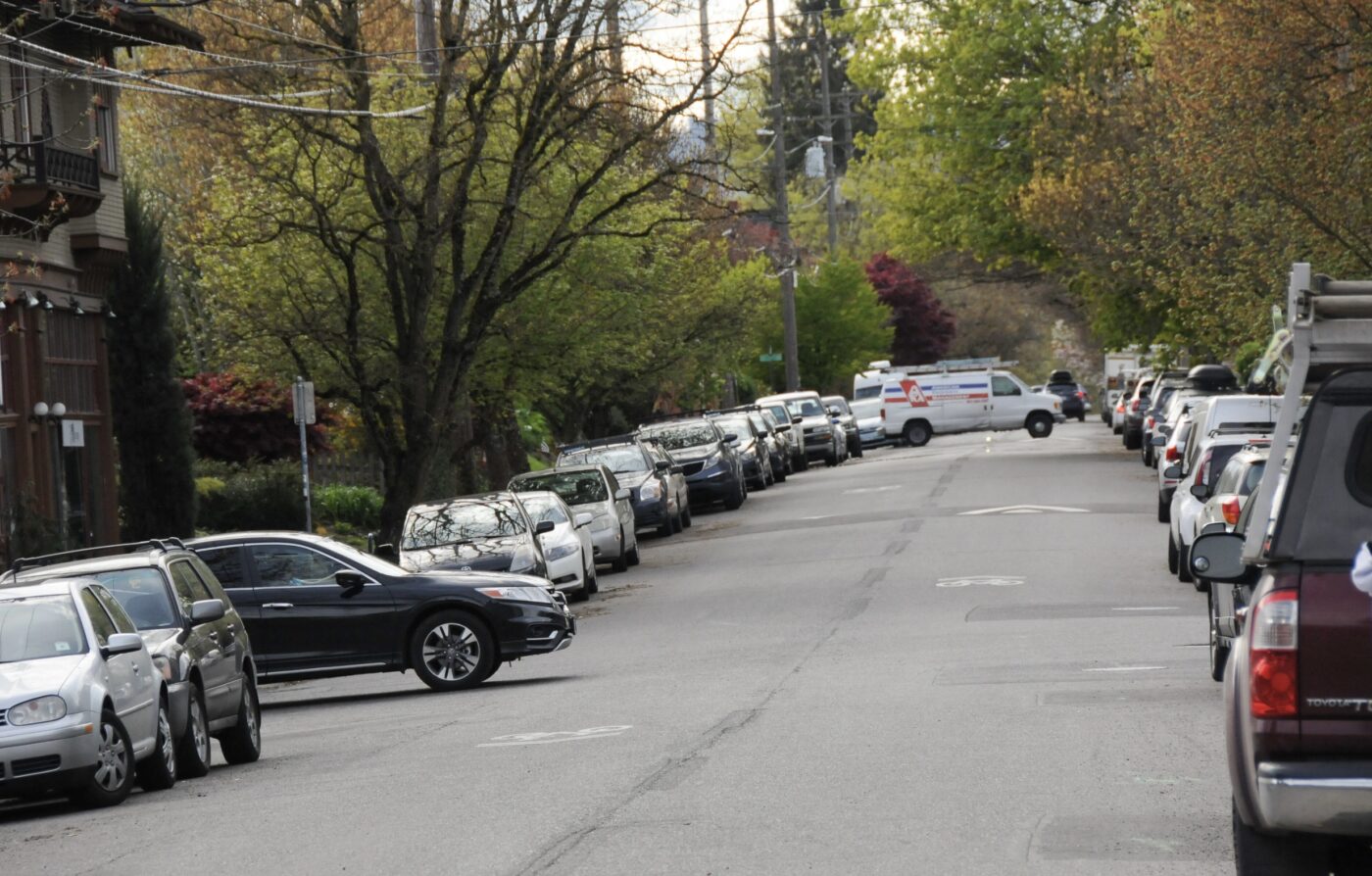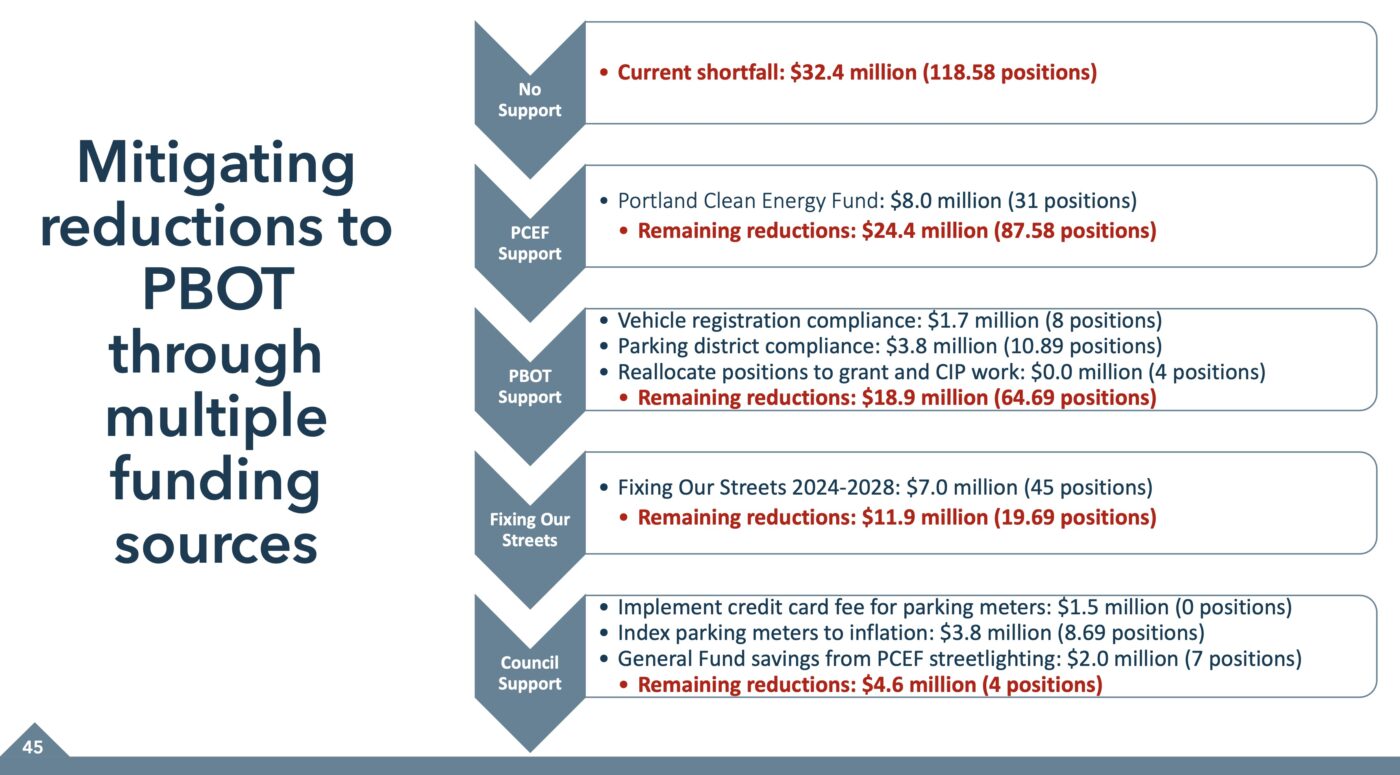Portland’s transportation bureau walked slowly away from the edge of a financial cliff on City Council budget work session on Thursday. Battered by years of revenue loss made worse by not charging road users enough for the service of safe streets, and a change in travel behaviors exacerbated by the pandemic, the Portland Bureau of Transportation was an agency on the brink when they approached council for help five months ago.
With a $32.4 million shortfall and the prospect of laying off 118 full-time employees that would have been “gutting to the bureau” (according to its director), something had to give. In a proposal shared for the first time yesterday, we learned that PBOT will plug about one-third of that revenue hole by charging drivers more to park and register their vehicles. Combined with funding from the Portland Clean Energy Fund and the expected (but not guaranteed!) passage of the Fixing Our Streets local gas tax renewal in May, PBOT has chiseled that shortfall down to a manageable $4.6 million and just four full-time positions (which likely won’t result in any layoffs).
PBOT’s budget was presented at council yesterday along with the budgets from the water and environmental services bureaus (it was the first time all three bureau directors teamed up under the “Public Works” banner, a nod to the upcoming change in government that will group bureaus into “service areas” to encourage collaboration).
PBOT Director Millicent Williams laid out the plan (at right) by saying it’s long overdue that the city starts to “more efficiently collect resources” owed by drivers who starve parking meters and have expired tags. “Over the course of many, many years,” Williams said, “PBOT has been quite altruistic and has taken on opportunities to be in service to community without necessarily charging… and that’s part of what has added to where we find ourselves now.”
If this new budget plan is adopted, Williams will hire 28 new parking enforcement officers. Six will be assigned to write citations to Portlanders with expired registration and the rest will patrol parking meters and permit districts citywide. PBOT estimates of the one million previously registered vehicles in Portland, about 460,000 are eligible for renewal. Citations for expired tags and other parking infractions could net PBOT $5.5 million in the coming fiscal year.
To soften the blow, Williams told council that revenue from these citations will help her agency preserve popular services like: pavement preservation, block party permits, snow and ice response efforts, homeless camp cleanups (which PBOT does a lot of these days), staff support for the three modal committees (bike, walk, and freight), street plaza activations, parade permits, 823-SAFE request support, and more.
In addition to writing citations for these violations, Williams said having more parking officers on the ground will help general livability because it, “provides an additional set of trained eyes and ears are situations that arise on our streets.”
PBOT also wants to shift payment of the parking meter credit card usage fee from the city to car drivers and index the parking meter rate to inflation with a 20-cent across-the-board increase in all parking districts — moves they estimate will safe them an additional $5.3 million a year. (The 20-cent increase is to make up for previous years’ inflation rates. In future years, the rate will go up eight cents per hour per year.)
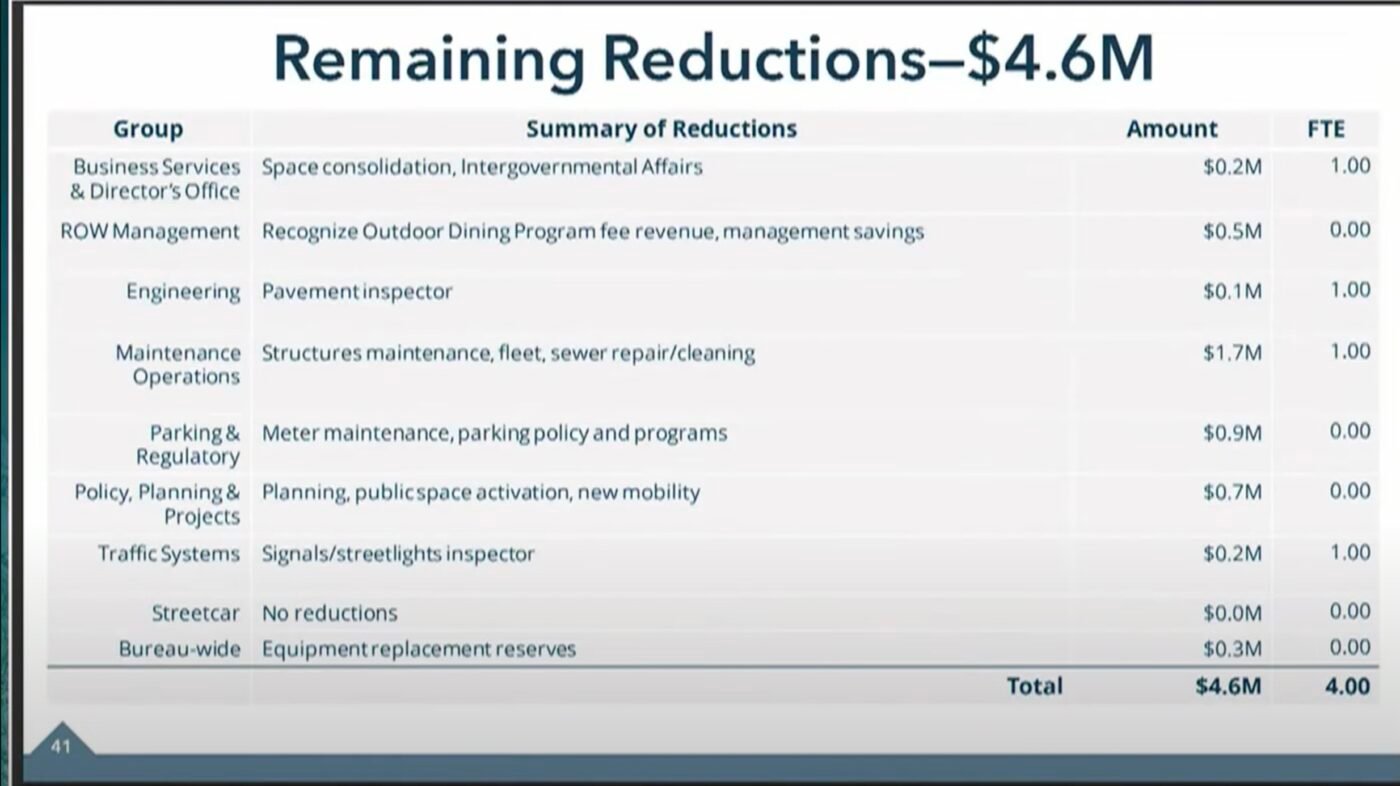
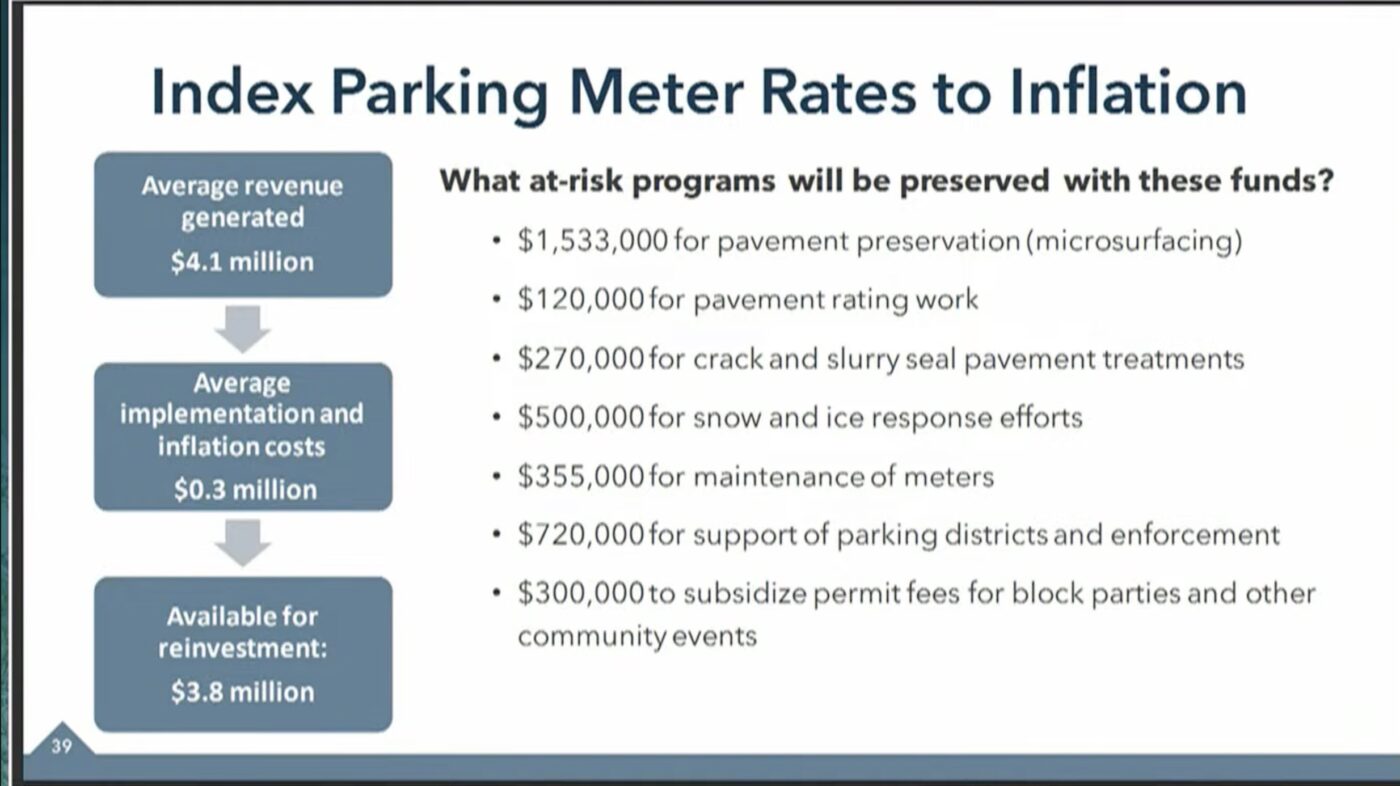
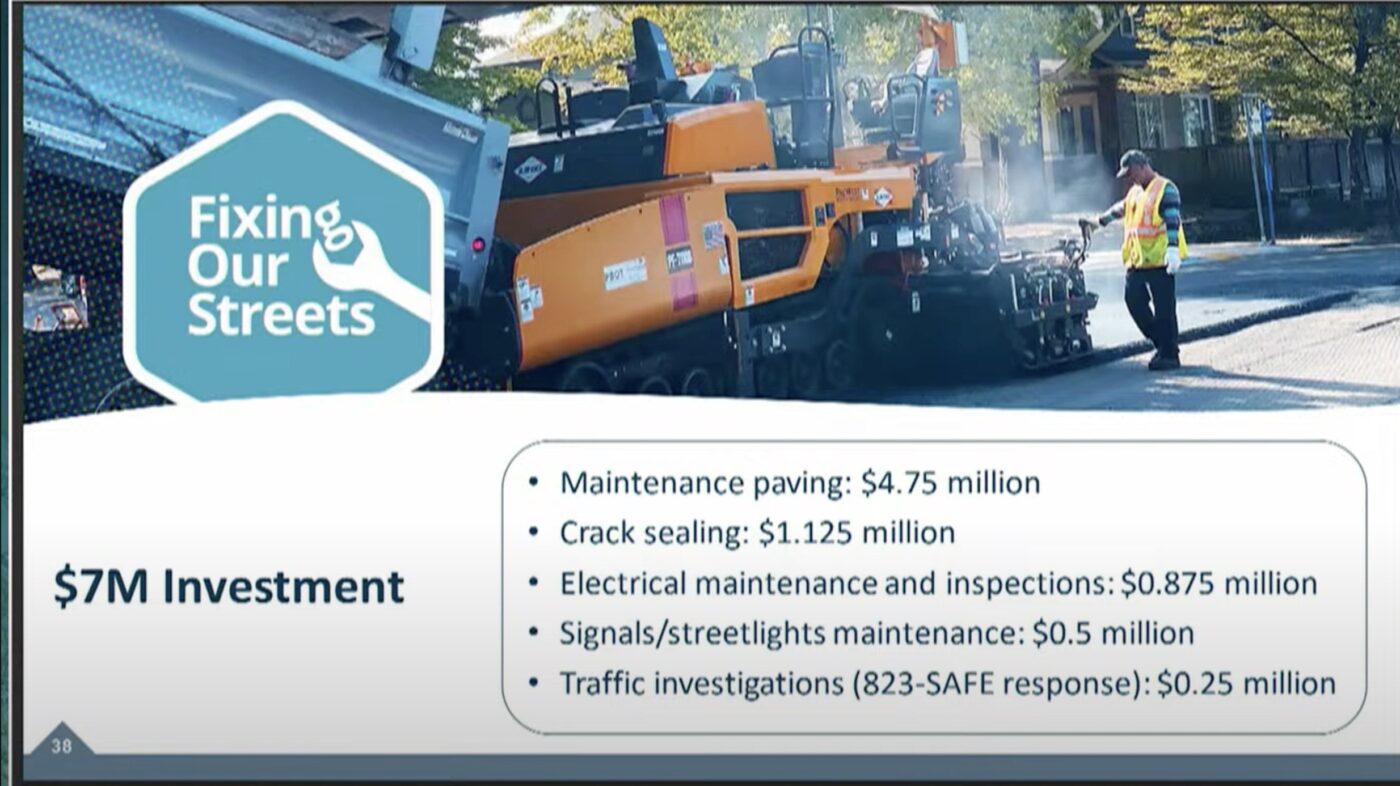
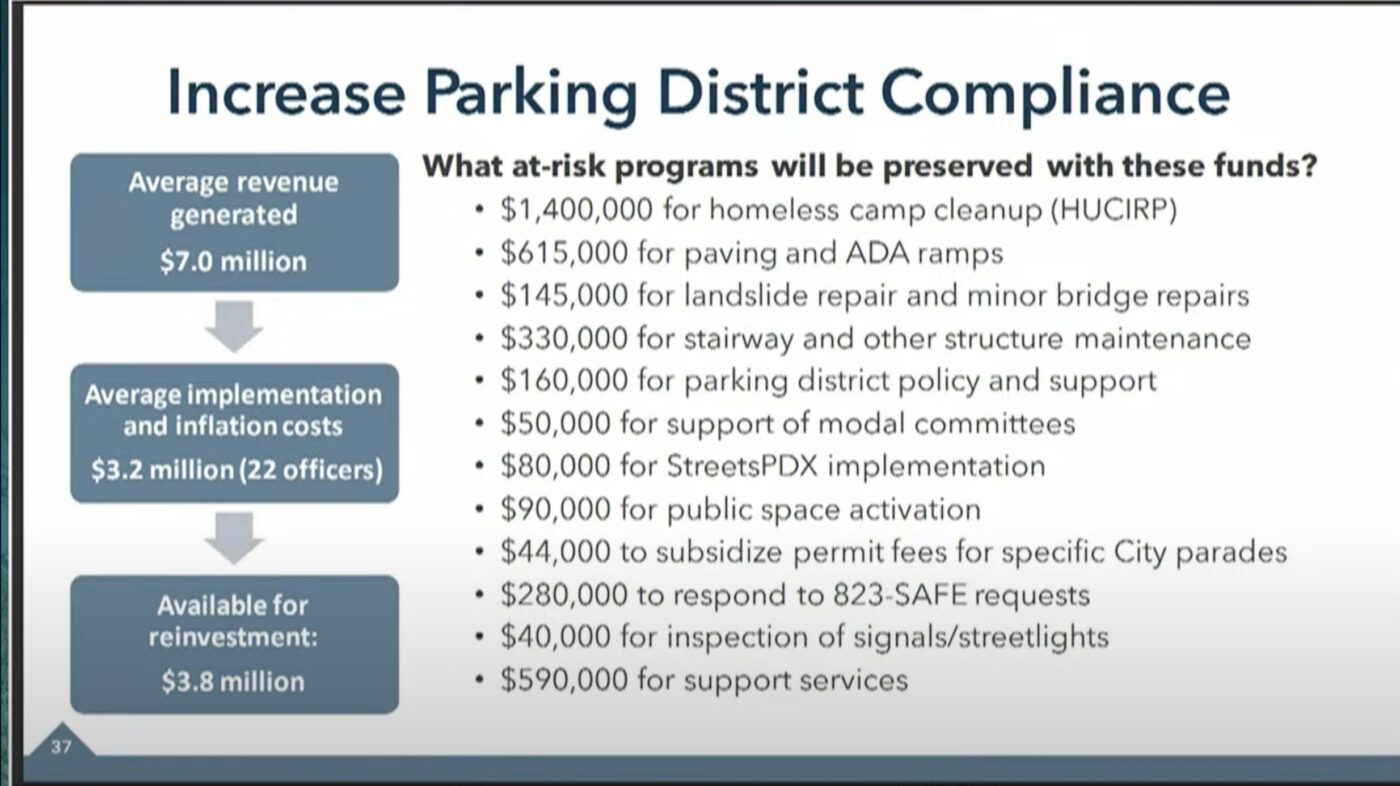
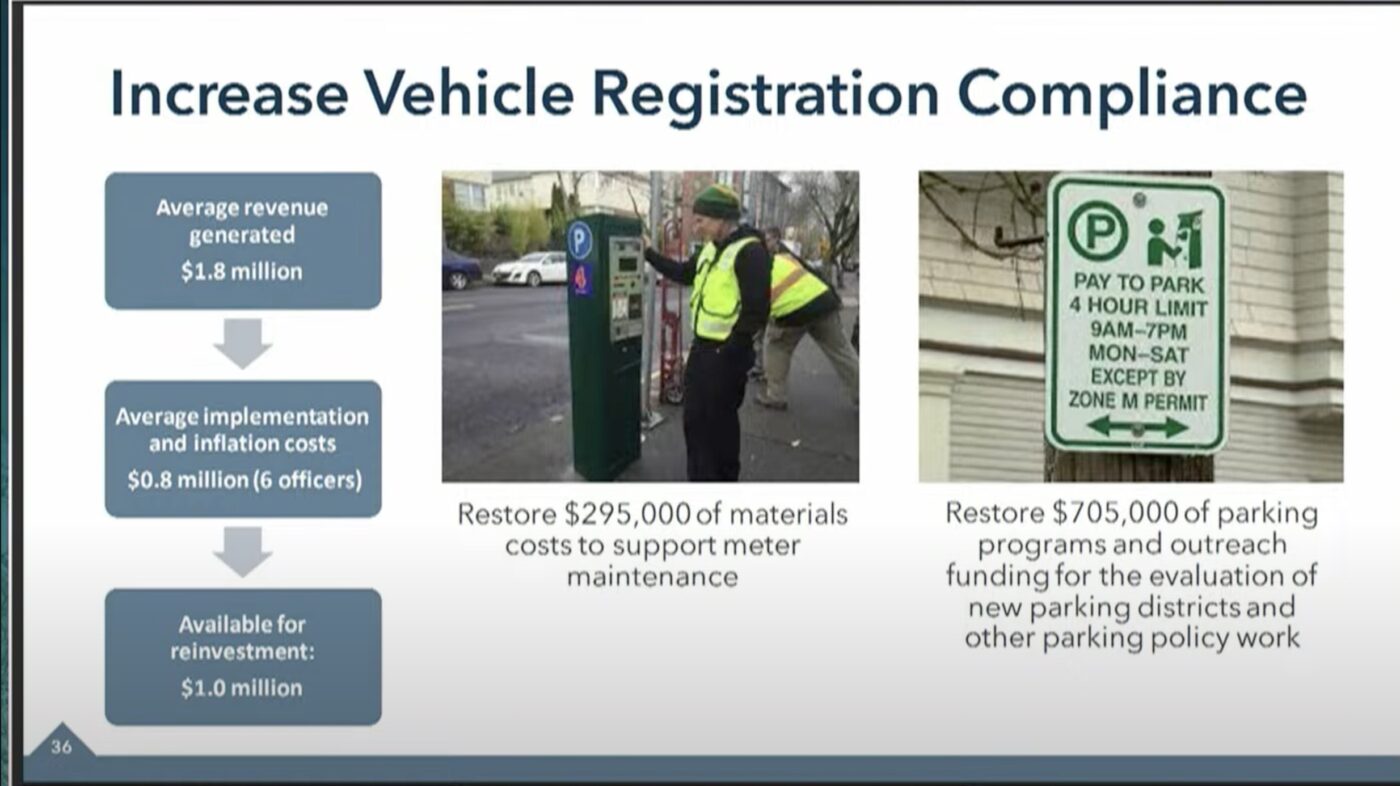
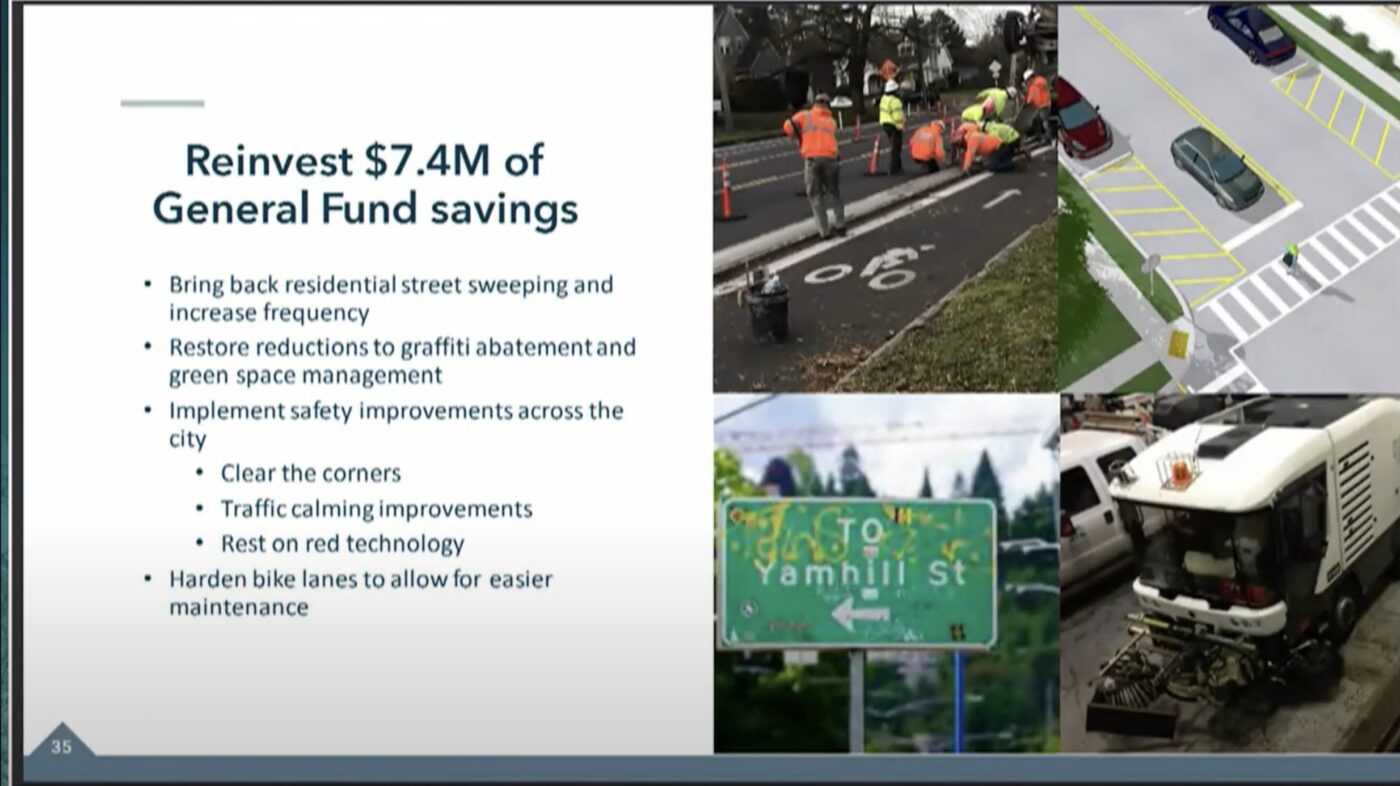
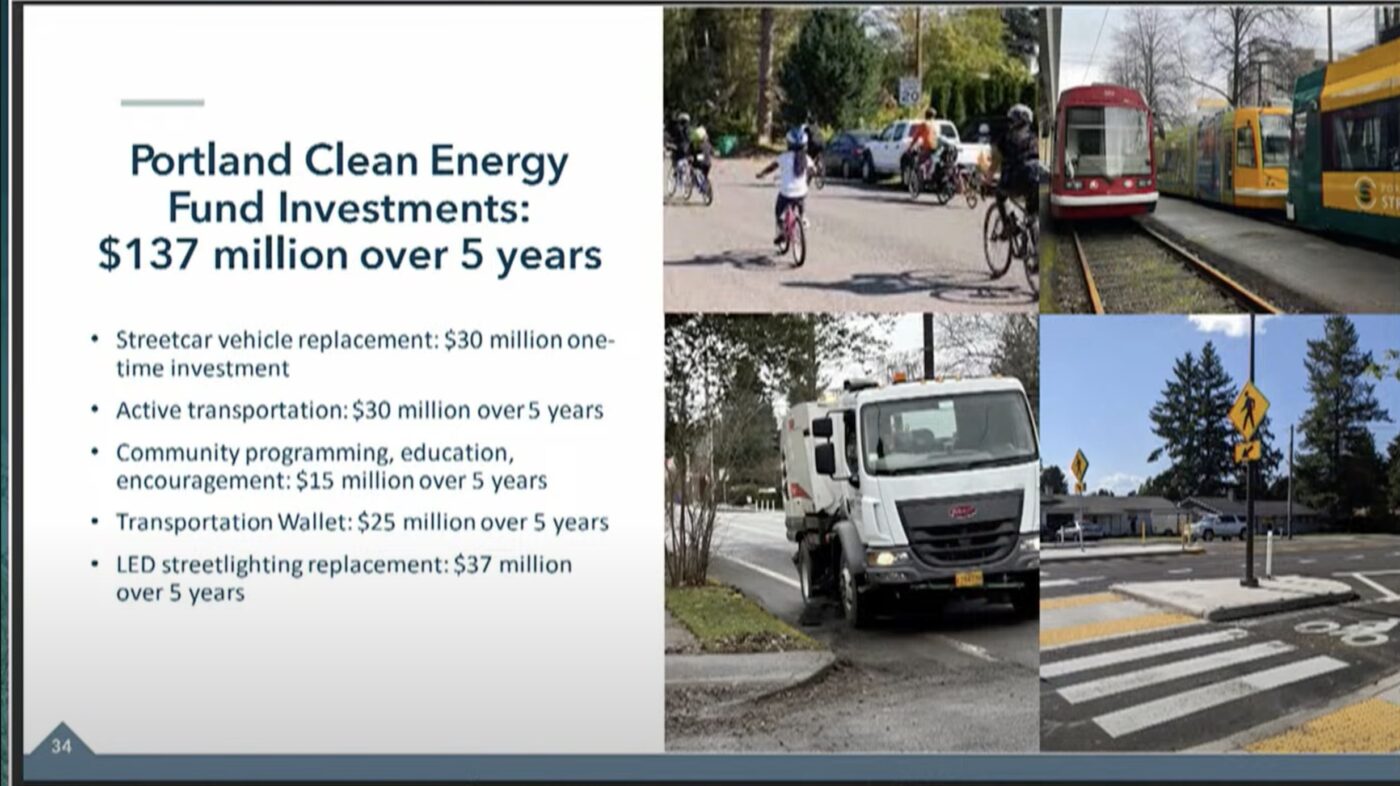
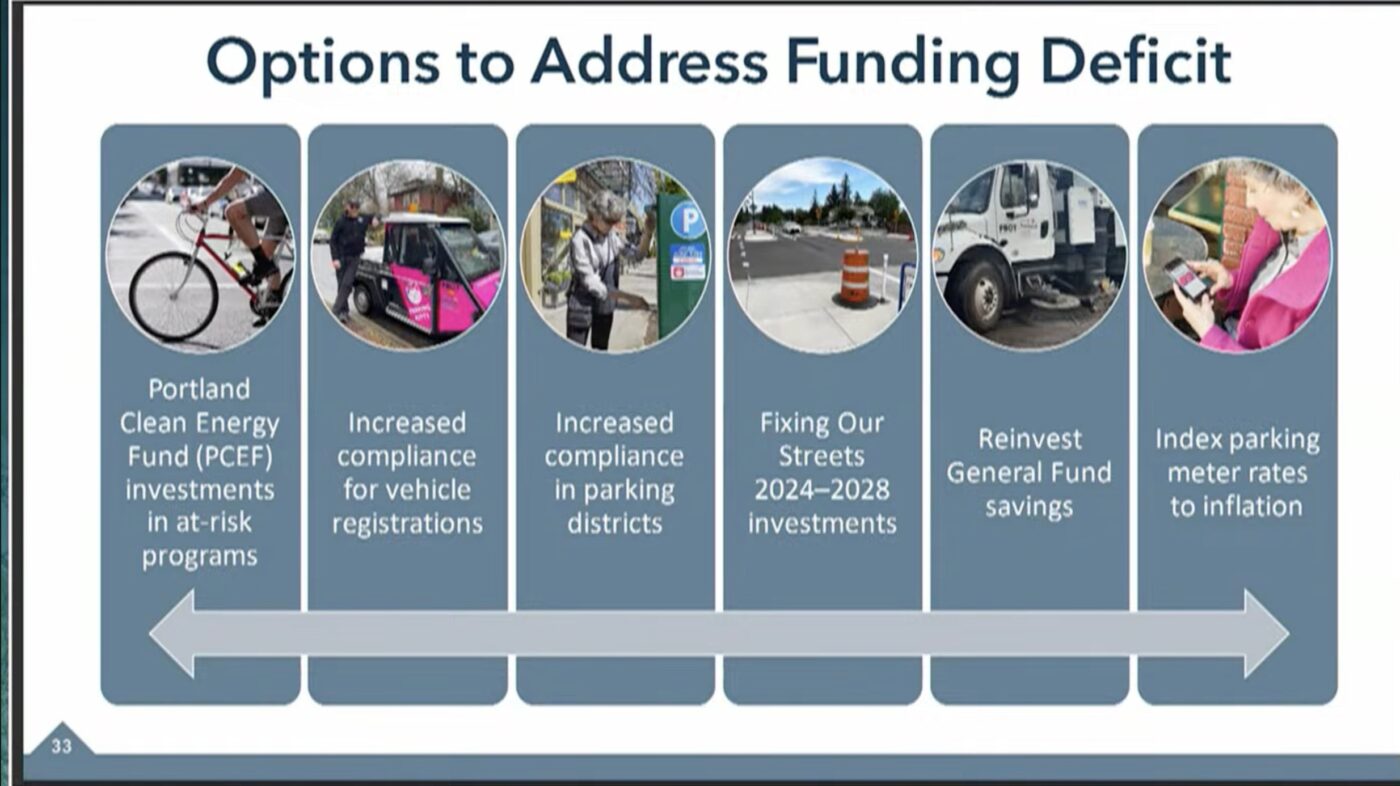
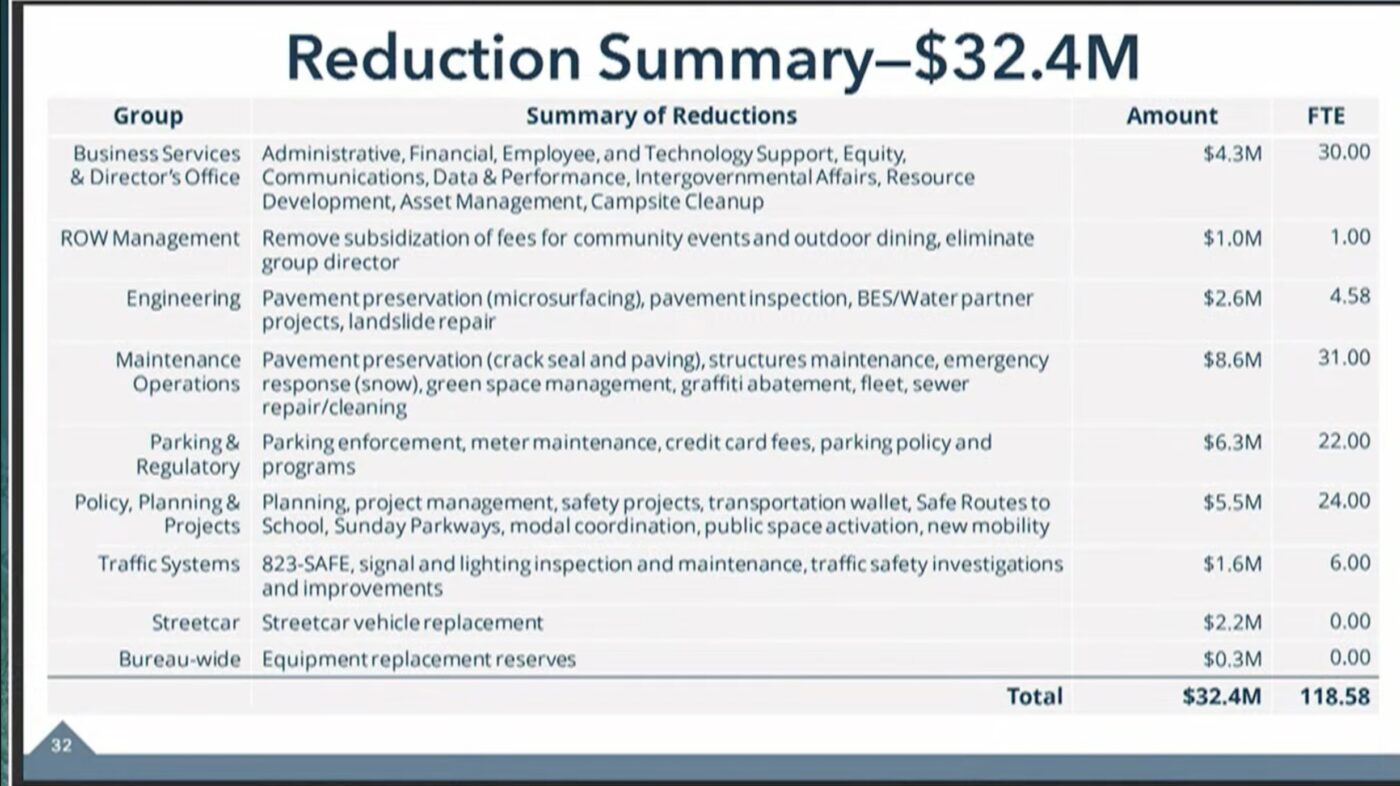
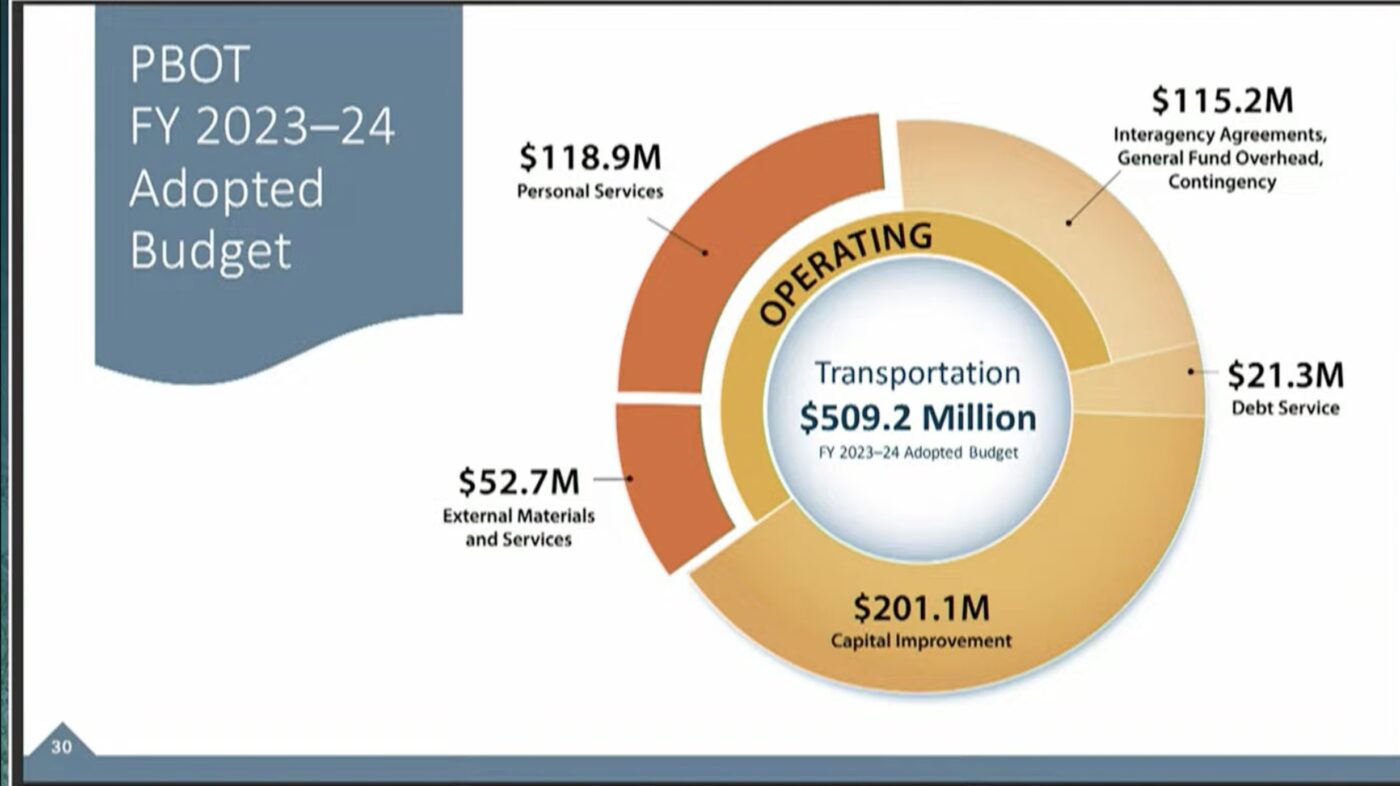
“There will be some political blowback here,” Commissioner Mingus Mapps said during yesterday’s work session. “We haven’t really been in the business of actually ticketing people for not registering their cars, and we’re going to hand out more tickets when you don’t plug the meter.”
Mapps said he’s also looking to add more paid parking districts around the city and framed it as a necessity given how much demand there is on curb space in dense residential and commercial areas. Sounding like a parking reformer who understands that pricing spaces is key to turnover in busy areas, Mapps added, “The dynamics of parking have changed dramatically in the last five years or so… If you are a small business trying to sell flowers or fresh bread and people can’t pull up to their store to facilitate that, we’re really killing business by not addressing this.”
Director Williams assured council that even with these proposed increases, parking rates in Portland are “still quite low” and would bring our prices up to about $2.60 an hour per meter, about 50% less than most major cities.
One new element of PBOT’s budget plan we learned yesterday was how the PCEF infusion will free up $7.4 million in general fund dollars that can be put to other uses. Specifically, PBOT showed a slide that said they’ll use the money to do more street sweeping, harden bike lanes, daylight intersections, and invest in other traffic calming upgrades.
In discussion among council members that followed the presentation, Commissioner Rene Gonzalez and Mayor Ted Wheeler expressed concern that PBOT still isn’t addressing the fundamental problem the bureau faces: that the behavior we want less of (driving) is largely what pays for everything else.
“I think one of the weaknesses in this for PBOT is that this is always such a transactional discussion… this annual fight between downtown business owners and PBOT over what it’s going to cost them to park,” Gonzalez said. He added that it’s easier for him to get business support if parking rate increases are locked-in and predictable year-over-year, instead of cuts one year and increases the next.
And Mayor Wheeler again expressed concern that many Portlanders feel they are being taxed to death already and can’t afford higher prices to drive. “There’s a lot of people who are driving in the city… who can’t afford to drive. And they’re driving even though they can’t afford to drive because the public transit system isn’t adequate,” he said. Wheeler also urged PBOT to move beyond this annual plea for new fees and “convene a community conversation about ‘How to people want the city to function going forward 25 years? What do we want it to look like?'”
PBOT Director Williams could be seen and heard nodding as Wheeler spoke. She assured him that, “There are a number of of intense and intentional conversations that are happening to ensure that we are thinking creatively about how we can move into a different conversation, one that is more centered on problem-solving versus pointing fingers at who’s to blame and what didn’t happen before.” “But,” she continued, “In the interim, there is the challenge that we have to maintain the system that we have.”
PBOT’s final budget request is due February 16th. Then the debates and politics will continue in the coming weeks and months until the Mayor releases his budget in early May and council takes action to approve a final 2024-2025 budget in lae June. Learn more at the City Budget Office website.

